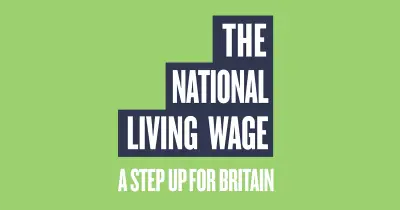Providing the lowest paid in society with a fair living wage is a good thing. No one can reasonably argue against this premise. When the Chancellor of the Exchequer George Osborne announced the National Living Wage (NLW) in the 2015 Budget, when the economic forecast was significantly rosier than it is today, he managed to combine the principles of compassionate conservatism with the aspiration to ensure hard working families can improve their own lives. The answer to who was going to pay for the increased cost of salaries was perceived by many to be a simple one: big companies can easily afford to make a relatively small pay rise happen and, anyway, there’s a moral imperative to do so. Let the fat cats dip into their own pockets for a change.
But for many sectors, and the care sector in particular, it’s not that simple. The care sector in England has been calling for improved funding to meet increasing demand for years. The figures around the cost of care are pretty stark. Research from LaingBuisson shows the basic cost of caring for an elderly care home resident was £554 per week for the year October 2014 to September 2015. Yet the average fee paid by councils throughout England over the same period was £512 per week, leaving a shortfall of £42 per week per resident (a significant increase over the previous year’s £31/week shortfall). In a sector where staff wages represent around 70 per cent of costs, the introduction of the NLW could drastically exacerbate this shortfall.
Ever since the NLW’s announcement, care providers have been calling for the Chancellor to address the funding gap urgently. In the 2015 Autumn Statement Osborne announced the 2 per cent precept that local authorities could add to council tax, intended to ‘plug the gap’, along with a moderate rise in the Better Care Fund, designed to help councils and NHS organisations work more effectively together to deliver joined up health and social care services.
However, critics including the Local Government Association and Care England have argued that these measures will provide too little, too late and now, on the eve of NLW’s implementation, many in the sector are warning the additional cost threatens the stability of an already very fragile sector. Professor Martin Green OBE, Chief Executive of Care England is blunt in his analysis; “For some, services have already been lost, for others, the National Living Wage will be the final straw.”
How we go about paying for social care is such an important subject that respected politicians have attempted, on several occasions, to de-politicise the issue and get cross-party consensus on a way forward, notably Andy Burnham in 2009/10 and more recently Norman Lamb. To-date the political will to achieve that consensus has been lacking. The fear within the sector is the looming funding crisis will have to actually play out, impacting on the lives of thousands of the most vulnerable people in our society, before action is finally taken.




